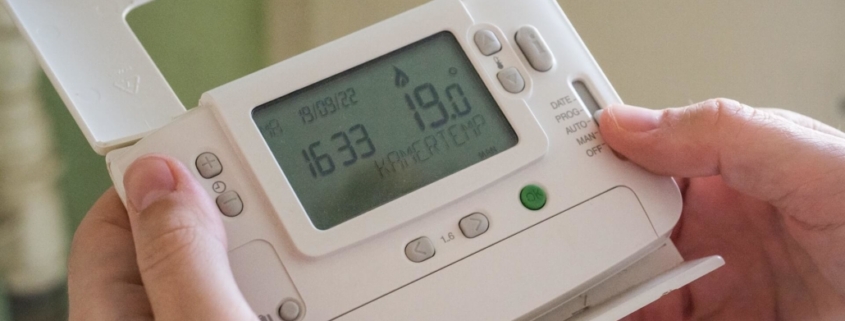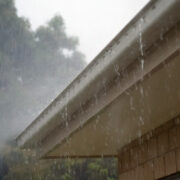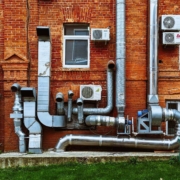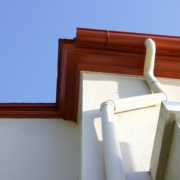HVAC Myths You Swore Were True
Many HVAC myths appear to be wishful thinking rather than based on any facts. And unfortunately, if you center your HVAC operation and maintenance on these misconceptions, you’ll probably end up being more out of pocket than if you followed recommended procedures. See these five HVAC myths you swore were true and save yourself some hard-earned cash.
1. The Larger the HVAC System, the Better
One of the prominent HVAC myths is the misconception that larger systems are better for home comfort and air quality. Sure, a bigger furnace or air-conditioning unit will pump out more hot or cold air quicker than an undersized unit. But the right size equipment is selected to perform best for the square footage of your home.
If you buy a system larger than recommended for your home, there will be problems. Even heating and cooling throughout is more difficult, and energy use is higher. So, you’ve wasted money on buying the more expensive larger unit and spent more on energy overall for the year.
Short Cycling Causes Damage
One of the biggest problems with oversized HVAC equipment is short cycling. Because the system quickly heats or cools to the set temperature, it is prompted to start and stop repeatedly. The constant operating changes cause high wear and tear on system parts, shortening their lifespan.
2. Closing Off Air Vents is Another of the HVAC Myths
So many people follow this next myth to their detriment. They believe that vents should be closed off in rooms that aren’t actively used. They believe this will keep more and better air going through the high-use rooms in the home. Unfortunately, that’s not how central heating and cooling work.
HVAC systems are designed to balance the airflow and temperature in every room with vents. If vents are closed, the system sends the same air volume through the ducts, but the flow is no longer balanced. As a result, pressure builds up in the system, putting strain on ductwork. Eventually, this causes leaks in the ducts, with repairs necessary.
The increased strain on the system will also raise energy consumption and up your power bills.
3. Resetting Thermostats with Large Temperature Swings
More HVAC myths center around thermostat settings. On a scorching day, you may be tempted to drop the temperature by many degrees, believing this will quickly cool the house down. But this will merely result in higher energy costs.
Your HVAC system is designed to remove hot indoor air to outside the home at a constant pace. This process continues until the temperature in all rooms meets the average of the thermostat setting. A significant drop in the thermostat temperature setting doesn’t mean the HVAC equipment can work any faster. However, it is put under a lot of stress to achieve a lower temperature.
Overworking central air strains HVAC parts, shortening lifespan and raising energy costs. The process of quickly increasing the temperature with central heating has similar problems.
4. My HVAC is Running Just Fine, so I Can Skip Annual Maintenance
Skipping annual upkeep can hit your wallet hard. Maintenance by professional HVAC technicians and ductwork cleaners heads off many unseen problems that may be starting. By the time your system starts to show signs of trouble, damage to equipment has already happened. It’s a false economy to save on maintenance costs and then have to fork out money for repairs.
5. High-Efficiency Filters are Better than Standard Filters
Another of the HVAC myths that don’t stack up is around air filters. With continual advice from government departments and industry that efficiency is key to reducing energy costs, it’s natural that there can be confusion around high-efficiency equipment.
The use of HEPA (high-efficiency particulate absorbing) air filters and standard air filters depends to a large extent on your circumstances. If you have family members who suffer from allergies or asthma, they may be significantly helped with HEPA parts. These air filters have a denser mesh that captures more airborne allergens and particles, resulting in higher air quality. But there are disadvantages.
As the thicker HEPA filter catches more airborne material, it clogs and reduces airflow. This puts strain on the system, leading to damage and shortened lifespan. HEPA filters must be regularly cleaned or replaced, more often than standard filters.
Professional Ductwork Cleaning in Northern Virginia
Six Penny Chimney provides expert fireplace and chimney cleaning services. Additionally, we can look after all your air duct cleaning requirements. Our friendly, high-quality work is no myth. Request a Quote or Service, and we will quickly respond. See you soon!












Leave a Reply
Want to join the discussion?Feel free to contribute!